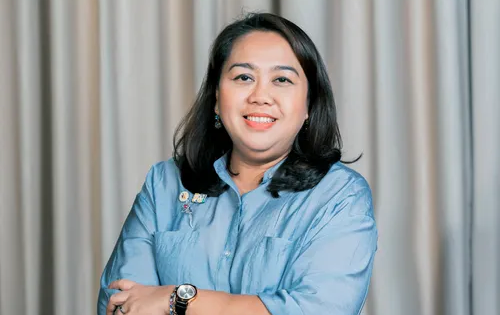DE&I in Asia-Pacific: Will US policy rollbacks reshape workplaces?
- Josephine Tan

“DE&I is not just a trend or a response to current events—it’s about creating a culture where all individuals, regardless of their background, feel valued and included.” – Kyawt Kay Thi Win, Country Director of the Business Coalition for Gender Equality (BCGE)
The recent rollback of diversity, equity, and inclusion (DE&I) policies in the US under the Trump administration has sparked widespread debate on its global implications. For multinational corporations (MNCs) operating in the Asia-Pacific region, the question remains: Will these changes pressure them to reassess their DE&I commitments, or will regional cultural and legal contexts shape a different path forward?
According to Kyawt Kay Thi Win, Country Director of the Business Coalition for Gender Equality (BCGE), the impact of these rollbacks will vary. “On one hand, some organisations with a strong commitment to inclusivity might feel a significant sense of responsibility to uphold their DE&I efforts, even if there are global pressures to scale back to reassess them,” she told HRM Asia. “Continuing could be a testament to the top management for their passion and authenticity in their inclusivity work—it could show that their leadership is truly dedicated to creating inclusive workplaces.”
While global trends influence corporate policies, Kyawt believes that distinct cultural and social factors shape DE&I in Asia-Pacific. “Even though both regions may aim for the same goal of inclusivity—a feeling of belonging—this can look different depending on cultural and social factors,” she said. “For example, the issues that are important in the US, like racial equality or gender diversity, may not be the same in Asia-Pacific countries where different challenges, such as social roles or ethnic diversity, are more important.”
Organisations in Asia-Pacific must adapt global DE&I standards to local realities to ensure their programmes are meaningful and effective. Kyawt continued, “In the end, the organisations that truly care about inclusivity will continue to focus on it, even if they face challenges in different countries. Their efforts will reflect the basic human rights we all should care about, and they will find ways to make their workplaces more inclusive, no matter the challenges they face.”
The ethical imperative of DE&I
As political climates shift, some organisations may question the necessity of maintaining DE&I initiatives. However, Kyawt strongly emphasised that inclusivity is not just a passing trend. She said, “DE&I is not just a trend or a response to current events—it’s about creating a culture where all individuals, regardless of their background, feel valued and included.”
“This is especially important because inclusivity is a process of behavioural change within an organisation. It’s about fostering a welcoming environment where people from diverse backgrounds—who might otherwise be excluded—feel a sense of belonging.”
She highlighted the “3H principle” as a foundation for DE&I efforts: “learn by head, inspire by heat, and implement by hands.” She explained, “This principle is crucial because inclusivity goes beyond theory. It requires a deep understanding (learning by head), genuine compassion and passion (inspired by heart), and practical actions (implemented by hands).”
Another pressing concern following the rollback of gender identity protections in the US is its potential impact on employee wellbeing and mental health. In Asia-Pacific, Kyawt warned that similar policies could increase employee stress, anxiety, and disengagement.
“The rollback of gender identity protections in workplaces across Asia-Pacific could negatively impact employee wellbeing and mental health,” she said. “Inclusive employers, however, implement DE&I policies that form the foundation for welcoming employees from diverse backgrounds, ensuring they can be their authentic selves and feel accepted, both for visible and invisible aspects of diversity.”
For organisations aiming to attract and retain top talent, particularly younger generations, DE&I is no longer optional but a business necessity. “As younger generations, including Generation Y, increasingly seek inclusive and flexible work environments, employers must adapt to this demand to attract and retain talent,” she noted. “Organisations committed to inclusivity benefit mutually, as these policies drive employee satisfaction and business success.”
While DE&I programmes in the US face political headwinds, organisations in Asia-Pacific could reinforce their commitment to inclusive workplaces. Leadership is crucial in ensuring these programmes remain robust despite external pressures.
“The impact of the rollback will largely depend on an organisation’s leadership commitment to inclusivity and its passion for maintaining an inclusive agenda, which may shield the organisation from external pressures,” Kyawt concluded.
A masterclass on inclusive workplaces—Register now
As global organisations navigate these changes, one thing remains clear: the most successful organisations will be those that prioritise inclusivity, not just as a corporate responsibility but as a strategic advantage. In an era of evolving workforce expectations, organisations that uphold DE&I principles will foster stronger, more engaged, and more resilient teams.
To deepen your understanding of DE&I and explore practical strategies for building inclusive workplaces, join Kyawt at HR Tech Asia 2025. She will be facilitating the DE&I Masterclass – Inclusive Leadership on 5 May 2025, where participants will examine the core concepts of DE&I, reflect on personal experiences, and expand their knowledge to the workplace and societal contexts. The session will also identify barriers to equitable workplaces and offer actionable solutions, focusing on generational diversity and effective inclusion strategies.
Don’t miss this opportunity to gain insights from a leading DE&I advocate—register now to secure your spot!






